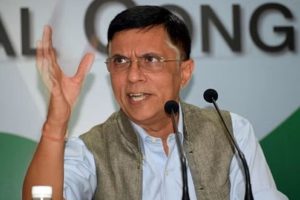The United States Department of State strongly rejected the allegations of the government’s involvement in former Bangladesh Prime Minister Sheikh Hasina’s resignation, terming them ‘laughable’ and ‘absolutely false’ claims.
“That’s laughable. Any implication that the United States was involved in Sheikh Hasina’s resignation is absolutely false,” Principal Deputy Spokesperson of the US Department of State, Vedant Patel, said in a press briefing on Tuesday (local time).
Patel further said that a lot of disinformation has been seen in recent weeks regarding the current happenings in Bangladesh.
Advertisement
“We have seen a lot of disinformation in recent weeks and we were made incredibly committed to strengthening information and integrity across the regional ecosystem, especially our partners in South Asia,” he said.
Recently, in an interview with ANI, Michael Kugelman, a US -based Foreign Policy expert, and Director of the South Asia Institute at The Wilson Center, refuted allegations of foreign interference behind the mass uprising that led to Sheikh Hasina’s ouster, stating he had not seen any ‘plausible evidence’ to support these claims.
He noted that the Hasina government’s harsh crackdown on protesters escalated the movement. “My view has been very simple. I see this as a crisis that was driven by purely internal factors, by students who were unhappy about a particular issue, job quotas that they didn’t like and they were worried about the government. Sheikh Hasina’s government cracked down very hard on the students and that then turned the movement into something much bigger. And this was simply driven by internal factors,” Kugelman said.
Kugelman dismissed allegations from Sheikh Hasina’s son, Sajeeb Wazed Joy, who claimed foreign interference behind the protests, saying that the unrest was driven by “internal factors.”
“Now, you know, when there is a conspiracy theory that is rooted in issues of foreign influence, one cannot disprove such type of allegation. Also, at the same time, one cannot conclusively prove it. I think the onus, is the responsibility to provide a plausible explanation for how it can be true. I am yet to hear that from Sheikh Hasina’s son, from anyone,” he added.
Bangladesh has been witnessing a fluid political situation ever since protests started across the country, leading to Sheikh Hasina’s resignation from the post of Prime Minister on August 5. The protests, led mainly by students demanding an end to a quota system for government jobs, evolved into anti-government demonstrations.
A large number of people protested outside the White House in Washington on Friday last week against alleged violence targeting minority Hindus and others in Bangladesh since former Prime Minister Sheikh Hasina’s ouster.
Protesters carried American and Bangladeshi flags and held posters demanding that Bangladeshi minorities be “saved.” They chanted slogans of “We want justice” and called for peace amid the recent surge in violence.











